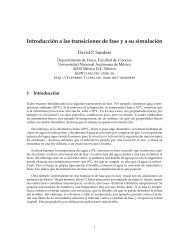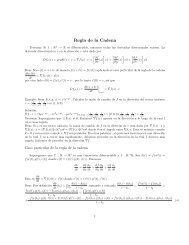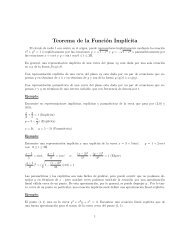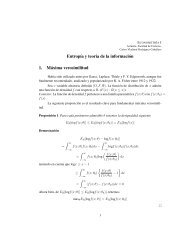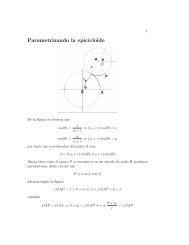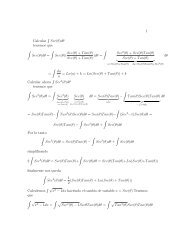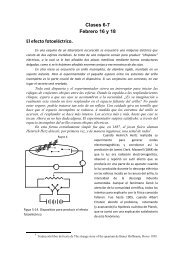"Surely You're Joking, Mr. Feynman!" - unam.
"Surely You're Joking, Mr. Feynman!" - unam.
"Surely You're Joking, Mr. Feynman!" - unam.
You also want an ePaper? Increase the reach of your titles
YUMPU automatically turns print PDFs into web optimized ePapers that Google loves.
way to understand ethical problems is to look historically at how they evolved and how<br />
they developed; the international lawyer suggested that the way to do it is to see how in<br />
fact people actually act in different situations and make their arrangements; the Jesuit<br />
priest was always referring to "the fragmentation of knowledge"; and I, as a scientist,<br />
proposed that we should isolate the problem in a way analogous to Galileo's techniques<br />
for experiments; and so on. "So, in my opinion," I said, "we had no dialogue at all.<br />
Instead, we had nothing but chaos!"<br />
Of course I was attacked, from all around. "Don't you think that order can come<br />
from chaos?"<br />
"Uh, well, as a general principle, or. . ." I didn't understand what to do with a<br />
question like "Can order come from chaos?" Yes, no, what of it?<br />
There were a lot of fools at that conference pompous fools and pompous<br />
fools drive me up the wall. Ordinary fools are all right; you can talk to them, and try to<br />
help them out. But pompous fools guys who are fools and are covering it all over and<br />
impressing people as to how wonderful they are with all this hocus pocus THAT, I<br />
CANNOT STAND! An ordinary fool isn't a faker; an honest fool is all right. But a<br />
dishonest fool is terrible! And that's what I got at the conference, a bunch of pompous<br />
fools, and I got very upset. I'm not going to get upset like that again, so I won't participate<br />
in interdisciplinary conferences any more.<br />
A footnote: While I was at the conference, I stayed at the Jewish Theological<br />
Seminary, where young rabbis I think they were Orthodox were studying. Since I<br />
have a Jewish background, I knew of some of the things they told me about the Talmud,<br />
but I had never seen the Talmud. It was very interesting. It's got big pages, and in a little<br />
square in the corner of the page is the original Talmud, and then in a sort of Lshaped<br />
margin, all around this square, are commentaries written by different people. The Talmud<br />
has evolved, and everything has been discussed again and again, all very carefully, in a<br />
medieval kind of reasoning. I think the commentaries were shut down around the<br />
thirteen or fourteen or fifteenhundreds there hasn't been any modern commentary.<br />
The Talmud is a wonderful book, a great, big potpourri of things: trivial questions, and<br />
difficult questions for example, problems of teachers, and how to teach and then<br />
some trivia again, and so on. The students told me that the Talmud was never translated,<br />
something I thought was curious, since the book is so valuable.<br />
One day, two or three of the young rabbis came to me and said, "We realize that<br />
we can't study to be rabbis in the modern world without knowing something about<br />
science, so we'd like to ask you some questions."<br />
Of course there are thousands of places to find out about science, and Columbia<br />
University was right near there, but I wanted to know what kinds of questions they were<br />
interested in.<br />
They said, "Well, for instance, is electricity fire?"<br />
"No," I said, "but. . . what is the problem?"<br />
They said, "In the Talmud it says you're not supposed to make fire on a Saturday,<br />
so our question is, can we use electrical things on Saturdays?"<br />
I was shocked. They weren't interested in science at all! The only way science<br />
was influencing their lives was so they might be able to interpret better the Talmud! They<br />
weren't interested in the world outside, in natural phenomena; they were only interested<br />
in resolving some question brought up in the Talmud.



